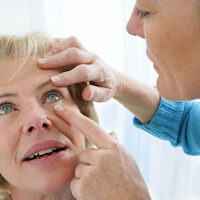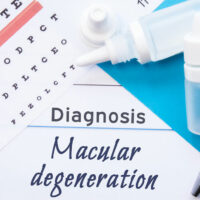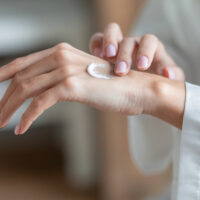Avoid These 7 Things for Healthy, Glowing Skin

Do you want healthy, glowing skin but don’t know where to start? Although many products and treatments promise perfect skin, the best way to get that is to keep the skincare routine simple. Eating right, exercising regularly, drinking plenty of water, getting enough sleep, and maintaining proper hygiene can help maintain skin health. Additionally, from relying too much on moisturizers to not wearing sunscreen, here are things to avoid doing for healthy, youthful skin.
Not using sunscreen
To protect the skin from the sun, using a tinted moisturizer sunscreen for the face is a great first step. Excessive exposure to the sun’s harmful UV rays will cause the skin to age prematurely without protection. The skin also becomes more prone to wrinkles, freckles, dark spots, and other signs of sun damage. Furthermore, not using sunscreen increases the risk of developing skin cancer and eczema, which can affect overall health. Sunscreen protects one from the sun’s rays, along with pollutants and toxins in the environment that could otherwise be absorbed into the skin. Investing in a tinted moisturizer sunscreen can protect the face and help even the skin tone
Constantly touching the face
All kinds of pollutants that stick to the hands, from dust particles to bacteria from the environment, can be transferred to the face with just a touch. Over time, these particles can irritate the skin and lead to long-term health issues, including skin infections, eczema symptoms, and inflammation. Further, touching the face can increase oil production, which clogs pores and creates a breeding ground for bacteria. This makes the skin prone to acne and pimples. This is why frequently washing hands and avoiding touching the face often are key measures for skin health. Apart from skin woes, having clean hands is one of the most basic steps toward good health.
Using harsh soaps
Soaps containing harsh chemicals can make the skin feel cleaner initially but, over time, strip away the essential oils that keep the skin healthy and hydrated. These soaps often contain irritating and drying ingredients such as artificial fragrances, phthalates, and sulfates, disturbing the surface’s natural pH balance. This sometimes leads to increased dryness, breakouts, inflammation, and even eczema symptoms. Milder cleansers with natural ingredients (such as avocado oil and cocoa butter) are better options for keeping the skin clean, clear, and healthy. Natural alternatives such as castile soap are gentler on the skin containing plant-based ingredients, soothing the skin without harsh chemicals or toxins. Mild, fragrance-free products help retain skin moisture levels while gently exfoliating it for softer, smoother skin.
Sleeping with makeup on
Before going to bed, it is important to wash all the makeup off. Makeup creates a layer over the skin, causing more damage the longer it stays. Keeping makeup on for long periods clogs pores and can irritate the skin while also depriving the skin of vital oxygen throughout the night. Removing makeup helps get rid of unwanted debris and oils that can cause breakouts and premature aging. Additionally, cleansing the skin before bed can get rid of toxins from the skin so new and healthy cells can grow. Makeup removers, cleansers, and gentle soaps can clear the skin. However, one should avoid harsh cleansers containing alcohol or sodium lauryl sulfates, which can irritate sensitive skin.
Using rough towels
Towels made of jute or wool, when rubbed on the skin, can damage the skin barrier and cause irritation and abrasion. This can make the skin vulnerable to dryness, sensitivity, and breakouts. A gentler towel made with soft materials such as cotton is better for skin health. Rough fabric can increase the risk of inflammation, making the skin prone to infections. Further, the harsh fabric can damage or irritate the skin, allowing bacteria or allergens to enter easily. It can also strip away vital moisture from the skin. It is also important to avoid excessively rubbing the skin to remove product residue or dirt.
Using old, dirty brushes and towels
Using unwashed, dirty makeup brushes or towels can increase the risk of exposing the skin to harmful bacteria, leading to infection and other skin issues like breakouts. Additionally, as towels and washcloths become less absorbent over time, they are far less effective in removing makeup and dirt from the surface of the skin. So, one should invest in good quality tools with all-natural fibers such as cotton for cleaning the face. It will keep the skin safe from irritants.
Poor food choices
Deep-fried and processed foods, for example, contain high levels of trans fats, which can lead to premature wrinkles and dark spots. High sugar intake may increase the risk of inflammation in the body. Unhealthy eating habits can also impair the body’s ability to make new collagen, which is necessary for the skin to look supple and youthful. In addition, overly acidic meals with high amounts of artificial sweeteners can strip away essential minerals from the body, making one look tired as they age. So, one can keep the skin clean, healthy, and glowing by avoiding junk food and replacing it with fresh fruits, vegetables, nuts, and whole grains.
Additionally, when dealing with eczema symptoms like red, itchy skin and rashes, one should choose eczema-friendly skincare products. Consulting a dermatologist is crucial to address the underlying eczema causes and triggers, like environmental factors, allergies, and family history of the disease. A dermatologist can also prescribe the right products and treatment options to soothe all forms of this skin disease, like foot eczema. Eczema treatment can include prescriptions, topical creams and ointments, and avoiding triggers. Sometimes, hormonal IUDs (intrauterine devices) can cause acne too, which could require treatment. Here, consulting a doctor can help one get a customized treatment plan for dealing with the side effects of IUDs. Skin is a crucial organ, and properly caring for it is important for a blemish-free glow. Taking a few minutes for skin care daily, using the right products, and avoiding certain poor lifestyle habits are important for creating a good foundation for healthy skin.





